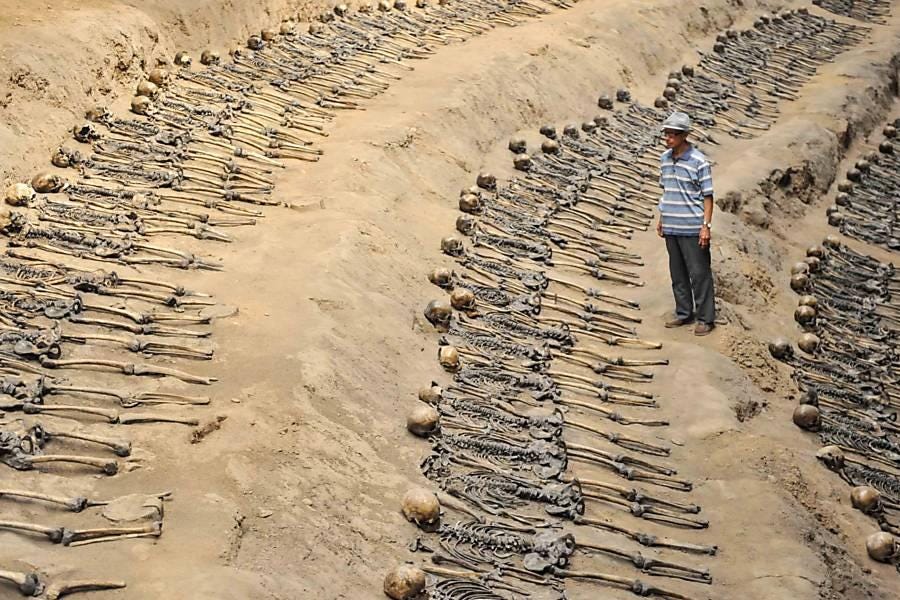The following is a short email I received from a teacher asking for help in preparing to teach the history of some of the world’s most horrific events. My thoughts and response are below.
“Dear Mr. Dunham,
In both 7th grade and 12th grade, we are about to talk about World War II. With that, comes discussing atrocities such as the Holocaust and the Rape of Nanking. However, I am unsure how to appropriately teach the specifics. They were very important events that need to be understood, but I also know I need to be aware of the level of the students that I teach. As a much more experienced teacher than I, could you give me advice on how to talk about these subjects with the students?
Thank you.”
The biggest thing to think through is your own personal preparation; that is, understand that the kids will take their cue from how you present and process with them, so if they see you being ONLY objective, then anything truly awful will seem shocking because we as humans shouldn't be unemotional when it comes to these things. In other words, students need to see you deal emotionally with the grief and not just the facts of these atrocities.
That said, you have to really check your own heart in presenting some of this. It's easy to throw something gratuitous out there either via image or story in order to get a reaction and reassure yourself that the students are listening, but we as teachers have to resist that temptation. The kids need to know what happened, and they also need to know how we feel about what happened. Definitely hold off on an overuse of graphic images at the 7th grade level, as well as be careful even at 12th grade—it's just too easy to go for the easy gut reaction and miss the nuance and respect that these events require.
For 7th grade, students read The Hiding Place, so they get a pretty good feel for at least one expression of the Holocaust. In general for that grade, keep it fairly objective and general. While they need to know these things have happened, the number of dead, the sort of categories of offenses (using Jews for scientific experiments, etc.) are more appropriate, probably, than the specific instances, descriptions, etc. It is a good opportunity to talk about human depravity and the nature of evil AND that the greater majority of Germans (for example) didn't actually participate, but nor did they act against. It's useful to discuss, in general, that the feeling of "I would never. . ." is exactly what often allows evil to take place.
For 12th grade, there is opportunity to talk more directly about the experiences and the factual accounts. Here's where images would perhaps be more appropriate. There are also lots of good connections with our Comparative Religions class, and again with the nature of evil and the fallen nature of humanity. Since it's American History, focus on American perceptions (or misperceptions) and the same sort of willful ignorance as other nations. Perhaps connections with how Americans view events today and how we expect our country/government to act, intervene, etc. Or, in other words, what makes the Holocaust so unique given the number of atrocities and scale in the 20th century?
Finally, be very careful what the kids see/hear you laugh about; humor is a natural protection mechanism we use when dealing with atrocities like these, but it can come off very crass. There needs to be a sacred approach, not just a funny self-protective one, to dealing with these matters of life and (unfortunately) death.


